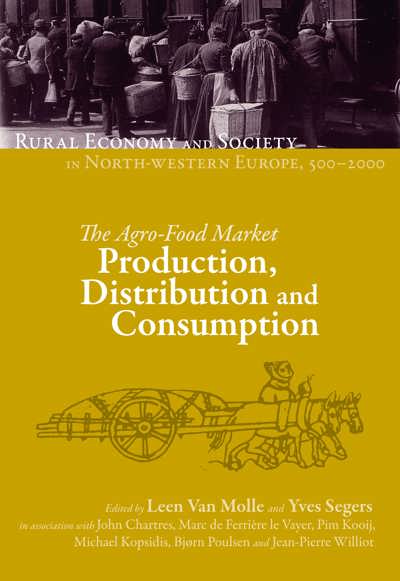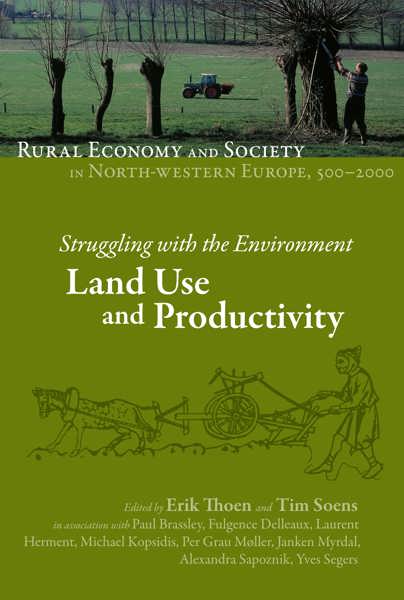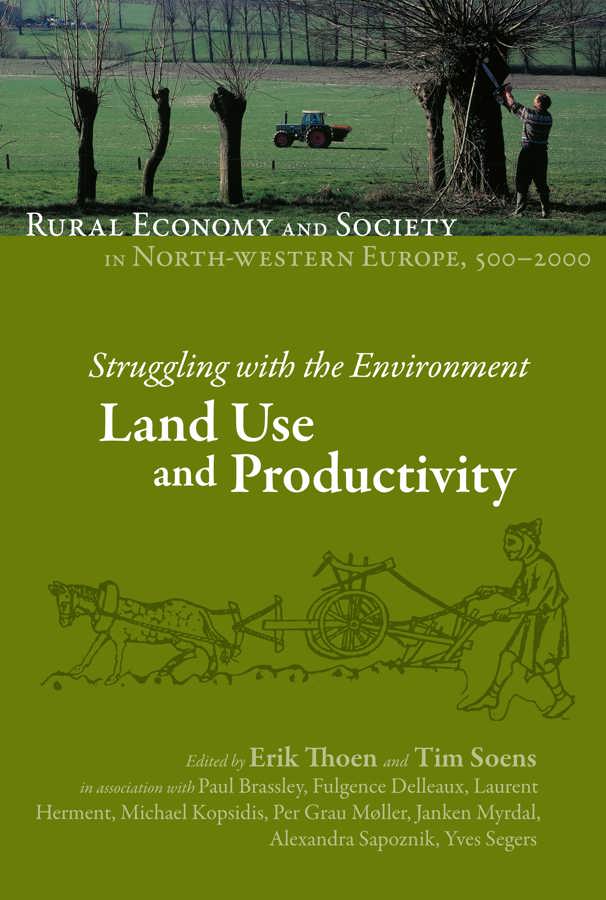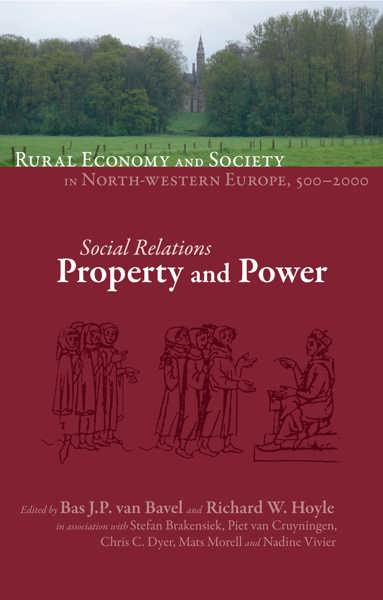
Struggling with the Environment: Land Use and Productivity
Erik Thoen, Tim Soens (eds)
- Pages: 499 p.
- Size:178 x 254 mm
- Illustrations:40 b/w
- Language(s):English
- Publication Year:2015
- € 155,00 EXCL. VAT RETAIL PRICE
- ISBN: 978-2-503-53047-5
- Hardback
- Available
- € 155,00 EXCL. VAT RETAIL PRICE
- ISBN: 978-2-503-56295-7
- E-book
- Available
“(…) this book goes far beyond being merely a presentation of land-use history. The objectives are highly ambitious and demanding for the authors involved (…) and are largely fulfilled.” (Della Hooke, in Landscape History, 38/1, 2017, p. 105)
Volume editorial board:
Erik Thoen (Ghent University, Belgium) & Tim Soens (University of Antwerp, Belgium)
in association with:
Paul Brassley (University of Exeter, UK), Fulgence Delleaux (Université de Namur, Belgium), Laurent Herment, Michael Kopsidis (IAMO, Halle, Saale, Germany), Per Grau Møller (University of Southern Denmark, Denmark), Janken Myrdal (Swedish University of Agricultural Sciences, Sweden), Alexandra Sapoznik (King's College, London, UK), Yves Segers (University of Leuven, Belgium)
Agriculture is always a struggle with the environment since agricultural production is in fact applied ecology. However, in the past this struggle with environment was to a large extent determined by social organisation, which was regionally very diverse. The aim of this volume is to fi nd out how, when and within which structural boundaries, land was made useful for agriculture. In the first part of each chapter, this is studied in general, focusing on the evolution of land use: how and why was land reclaimed and by whom? How intensively was this land used? Which actors played a part in this process? What were the environmental and social limits? In the second part production techniques and production systems are scrutinized: crop choices, crop rotations, the importance of fallow and cattle, crop yields etc. All this is examined in light of diff erent farming strategies and social conditions. The comparative approach of this volume in the Rural Economy and Society Series also enables a new and innovating perspective on the occurrence and impact of ‘agricultural’ and ‘green’ revolutions in the past.



